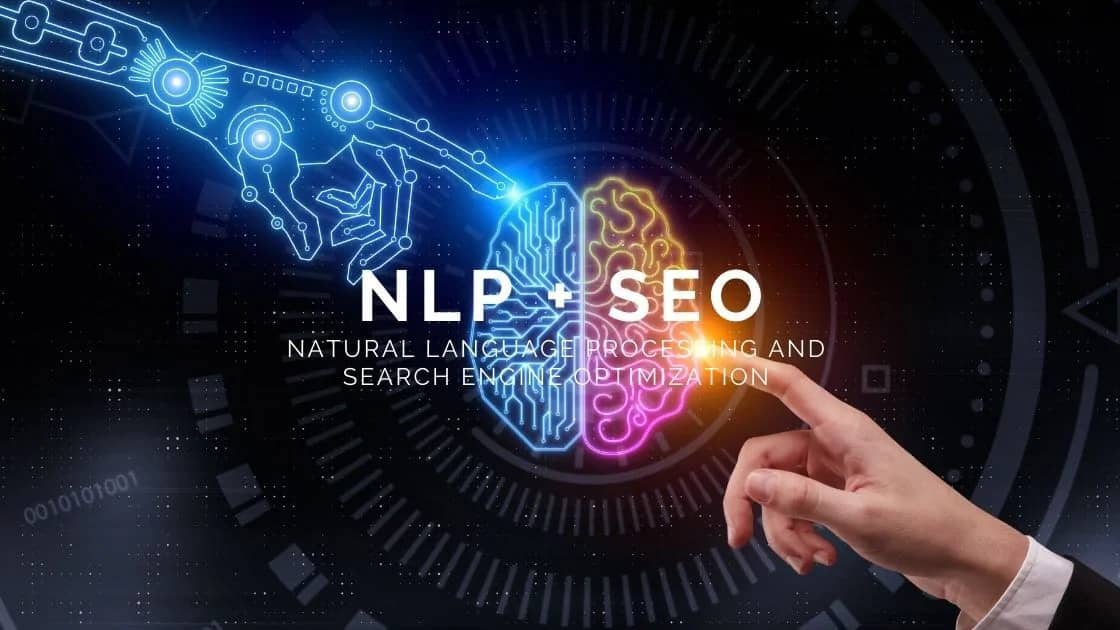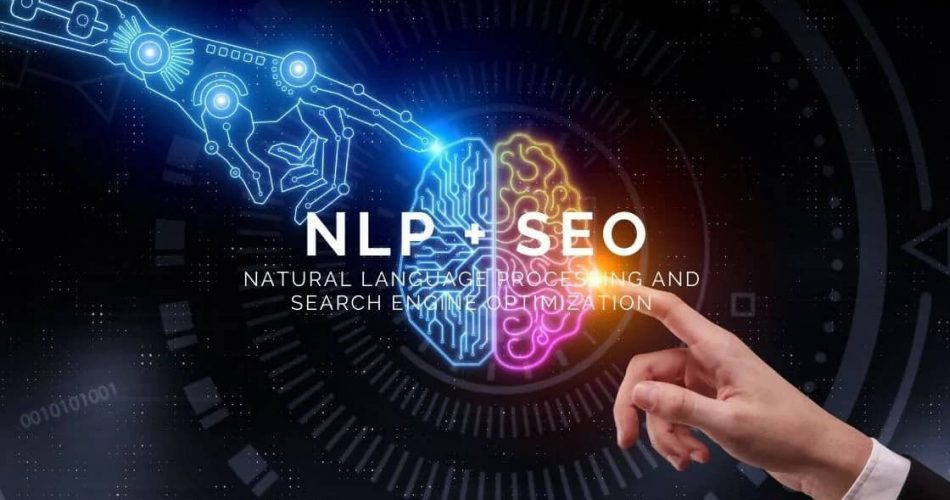Last Updated on October 30, 2021
Natural language processing (NLP) is a technology that has been around for quite some time now. It is the underlying technology that powers most of the smart assistants of today to understand our language. Let’s face it, when we speak or write we take liberties with the grammar and use slangs with different accents or dialects. As a computing system is inherently designed to conform to the strict patterns of computing language, it is no easy feat for natural language processors to handle such a trait of human language.

In context of online businesses, NLP has many applications and its impact on search engine optimisation (SEO) is arguably deepest. If you are trying to grow your online business or your web traffic has reduced in the recent years, then you should probably look into on page optimisation techniques for your webpages.
Google is the topmost search engine on the Internet that controls 92% of the search engine market. If your online business has to succeed it has to play by the rules of the search giant. Here our aim is to explore how you can use NLP along with your SEO strategies to better rank in Google.
Artificial Intelligence and Human Language Processing
Natural Language Processing is a subfield of artificial intelligence, which is why requires machine learning algorithms that help computers to make decisions. Natural language is a lot more complex for AI systems as its irregularities and inconsistencies make it much more difficult to parse through the data.
We are here to discuss how we can improve our websites as SERP rankings. Hence, we won’t get into the depth of NLP just how does Google achieve this goal. Natural language processors separate sentences and phrases into smaller tokens and then assign meaning to these units based on the context.
Google uses an NLP model known as Bidirectional Encoder Representations from Transformers (BERT). We assure you are aware of the BERT update, but focus on just one word-bidirectional. What does this mean is that BERT goes backward and forward in a sentence to better understand the nuisances of the search query than any other previous NLP algorithm. This enables Google to provide more relevant results for even the most complex queries.
How natural language processing is applied in real world?
You will better understand how NLP is reshaping industries with practical examples. AI is already empowering fields of data analytics, customer care and decision-making. When combined with natural language processing, many powerful technologies are enabled such as chatbots that can translate and communicate with customers in many different languages.
NLP is also used in up improving communication such as email filtering. Gmail is an apt example as it can easily classify a mail as promotional or spam by accessing the content. This is why marketers need to be careful with the language they use in the mail copy.
The same concept is applicable to our websites and their appearance in search engine results. Voice assistants are changing the search behaviour of users. There is a difference in dialect and words when users use voice assistants for a query. Voice assistants like Alexa and Siri use speech recognition for oral text.
As NLP is behind this conversion of oral speech into enquiries for the search engine, your primary focus must be on content that is optimised for natural language. Now you can always hire specialised SEO content services for the job, but if you choose to create content on your own, here are some steps to follow.
Understand Google’s Natural Language API
A common practice is to add more content, but website optimisation is not about quantity but quality. As we are focused on verbal search queries, you need to understand how Google’s NLP algorithm evaluates content.
Google’s NLP API is focused on 4 main factors: entity, sentiment, syntax and categories.
Consider Entity Salience
If you remember your elementary school English class, an entity is a simple noun-a person, place, thing or idea. Google use entity size indicators to understand how different things relate to each other. This is why monitoring entity salience in your content is how you determine whether your website is appearing for the right search queries or not.
Don’t confuse entity salience with keyword research. It is true that an entity can be a keyword but up rage only has a few targeted keywords but numerous entities. Your goal should be on tying the entities with keywords. You can better understand the concept, if you try Google’s API demo and a sample of how NLP impacts SEO using your content.
Earn Backlinks and Brand Mentions
Sentiment is another aspect that Google utilises to rank your content. Sentiment is scored from -1 to +1, ranging between negative and positive, zero considered neutral. You can hardly control sentiment in your own content, but analysing what is said about your business or website online.
It is obvious that most of the back links that you provide from your own blogs will have positive tone, still most of the links will come from outside. This is why your focus must be on customer satisfaction to get good reviews and positive mentions from influencers and other sources to build up brand recognition
You can keep an eye on active communications and business mentions online to understand what people are saying about your service. There are even NLP algorithms that can help you set up alerts when something is significantly negative is talked about your services or website.
Don’t Think Only of NLP
We understand this is counterintuitive, but as with every other SEO strategy your focus must be on customers and not over optimising your content. Your content will ultimately be read by humans so it should be tailored for both-target audiences as well as search engines.
Google’s API looks at syntax. Every language has its syntax and Google does syntax analysis by breaking down sentences into subparts and then evaluating information such as type and voice of the content. This provides some insights into how Google might actually understand your content, but it is not very different from what other AI-based editors do.
Speaking of categories, Google’s NLP algorithm evaluates and classifies text and assigns it a confidence score of how ‘sure’ it is about its relevancy to its category. The higher the score, the more relevant content is true that category. This improves the chances of the content to appear in the search topic results.
You cannot do a lot about confidence score other than using high-scoring content. This is why we recommend you do not spend a lot of time on adapting content for the categories. As long as you have some quality content ready, you most probably won’t need anything else to score enough confidence points.
Maintain Consistency
Till here we have discussed content optimisation, however it is not the only SEO strategy that will help you rank higher. There are other factors such as website structure, load time and user friendliness among others that impact rankings. This is why our technical SEO is a must to ensure that you have a high performing website that is responsive, fast and secure.
In the words of SEO experts of the industry, “Webmasters must focus on adaptable site migration which is changing the content, URL or design as per the requirement of the target audiences.”
This is why consistency is critical to get web traffic. You must make sure your website stays live and you post regularly to rank higher.
Conclusion
Natural Language Processing is already shaping the search engine industry. As AI takes over redundant computing technologies, you must read to your online business to meet the challenges of NLP used by search engines. We have pointed you in the right direction, now it’s on you how you harness the power of advanced SEO strategies to grow your online business.

